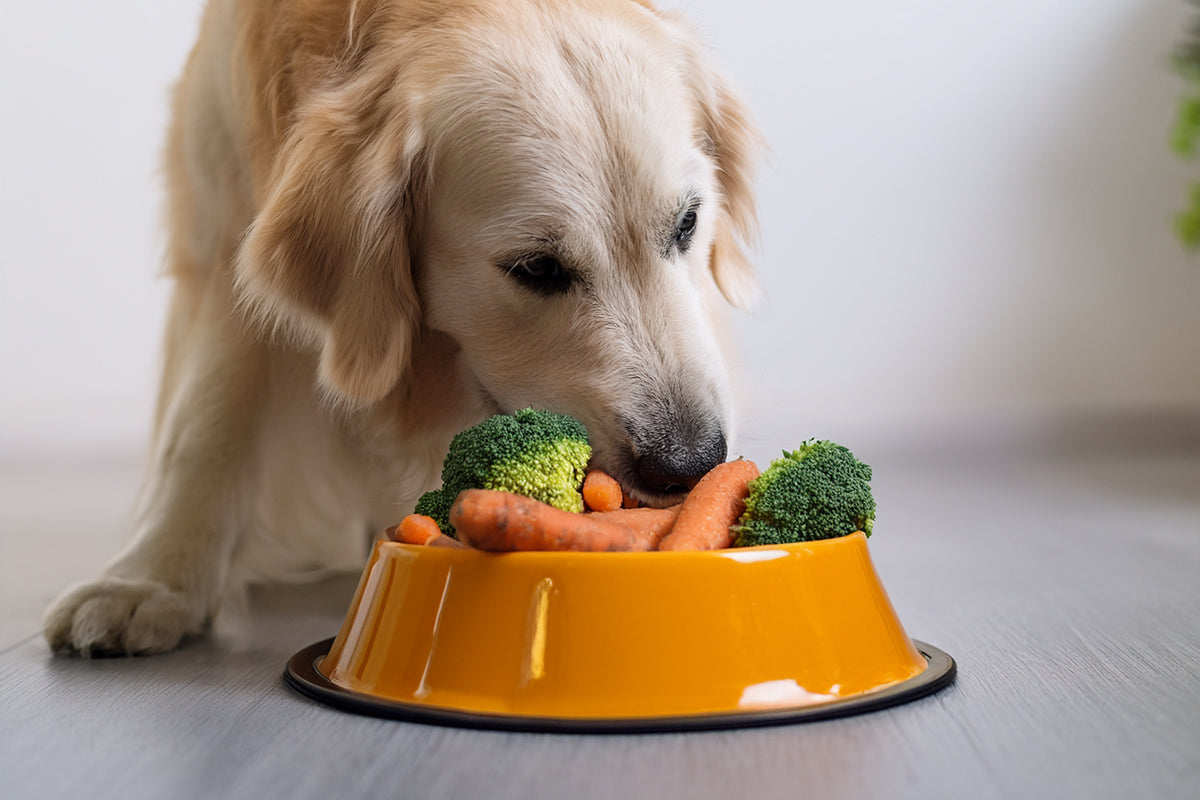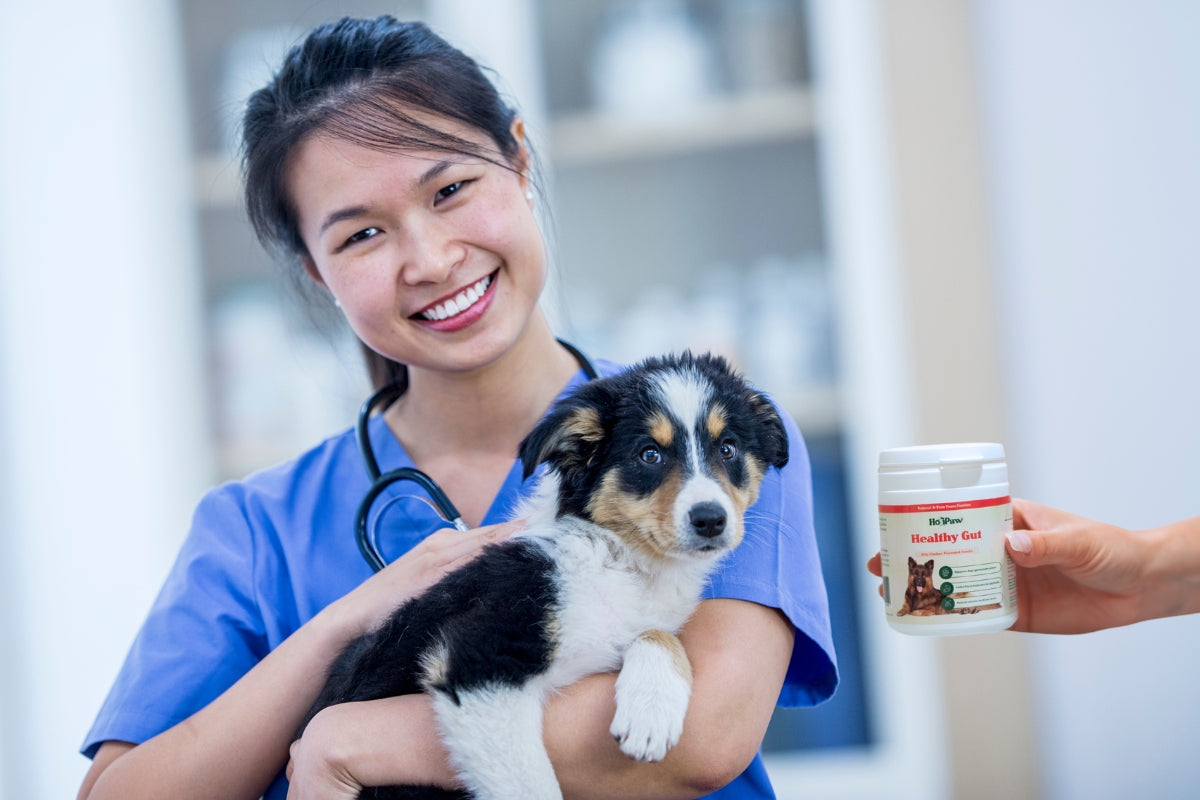Vegetables can be a great source of vitamins, minerals and fiber, but not all veggies are safe for dogs. Some can cause digestive upset or other health problems, while others may even be toxic. To help you keep your dog healthy, here’s a handy guide to the vegetables your dog can safely enjoy and those to avoid.
What vegetables can dogs eat?
Broccoli
Yes, your dog can eat broccoli, but in small amounts (too much may cause stomach upset). It's best served steamed or boiled, as raw broccoli can be tough to digest. Broccoli is rich in vitamins and minerals, such as vitamin C, vitamin K and folate.
Cucumber
Cucumbers are a great low-calorie snack for dogs. They’re high in water content, making them refreshing, especially on hot days. A good source of vitamin K and potassium.
Celery
Celery is safe for dogs and offers plenty of nutrients. It’s also known to help freshen their breath. Always cut it into small, chewable pieces. It contains vitamins A, C and K, along with antioxidants and fiber for healthy digestion.
Peas
Green peas, sugar snap peas, garden peas... all peas are safe for dogs to eat! Not only do they contain many vitamins & minerals, but they are also a good source of protein and fibre. However, avoid canned peas due to their high sodium content.
Sweet Potatoes
Sweet potatoes are a fantastic source of dietary fibre and vitamins A and C. They can be cooked and served to your dog, but ensure they are plain, with no added seasonings or spices. Sweet potatoes make a delicious and nutritious addition to your dog's meal.
Carrots
Yes! Carrots are an amazing snack for pups, low in calories, high in vitamins A and K, fibre and beta-carotene. That crunchy texture is also great for your dog's teeth. They can be served raw, steamed or even frozen as a refreshing treat.
Pumpkin
Plain, cooked pumpkin is excellent for digestion and can help regulate your dog’s stool. It’s rich in fiber and beta-carotene, plus vitamins A, C and E to support the immune system and skin health.
Brussels Sprouts
Brussels sprouts are safe for dogs to eat and they are full of nutrients (vitamins K and C plus antioxidants). However, don't let your dog eat too much of them, as they could become very gassy. We've warned you!
Zucchini
Zucchini is a healthy, low-calorie veggie option. Serve it raw or cooked in small pieces. A good source of vitamin C, potassium and magnesium. It’s also high in water and fiber, supporting digestion and hydration.
What vegetables dogs cannot eat?
Mushrooms
Only a small amount of mushroom species are toxic, but they can be fatal. Letting your dog eat wild mushrooms is just not worth the risk. White button mushrooms from the supermarket can be OK, but it's best to stay on the safe side.
Onions and Garlic
Dogs should stay away from onions, garlic and the whole Allium family (leeks, chives, etc.). These plants are pure poison for most pets, especially cats & dogs. Onions can cause their red blood cells to rupture which can also lead to serious stomach issues.
Rhubarb
Rhubarb leaves and stalks contain oxalates that can affect your dog’s digestive system and cause kidney damage.
Raw Potatoes
Raw potatoes contain solanine, which is toxic to dogs. Cooked potatoes are safe in moderation.
When introducing new vegetables to your dog's diet, start with small portions to see how they react. For more tips on how to look after your dog and help them live their best life, check out our other blog posts.




Leave a comment
This site is protected by hCaptcha and the hCaptcha Privacy Policy and Terms of Service apply.